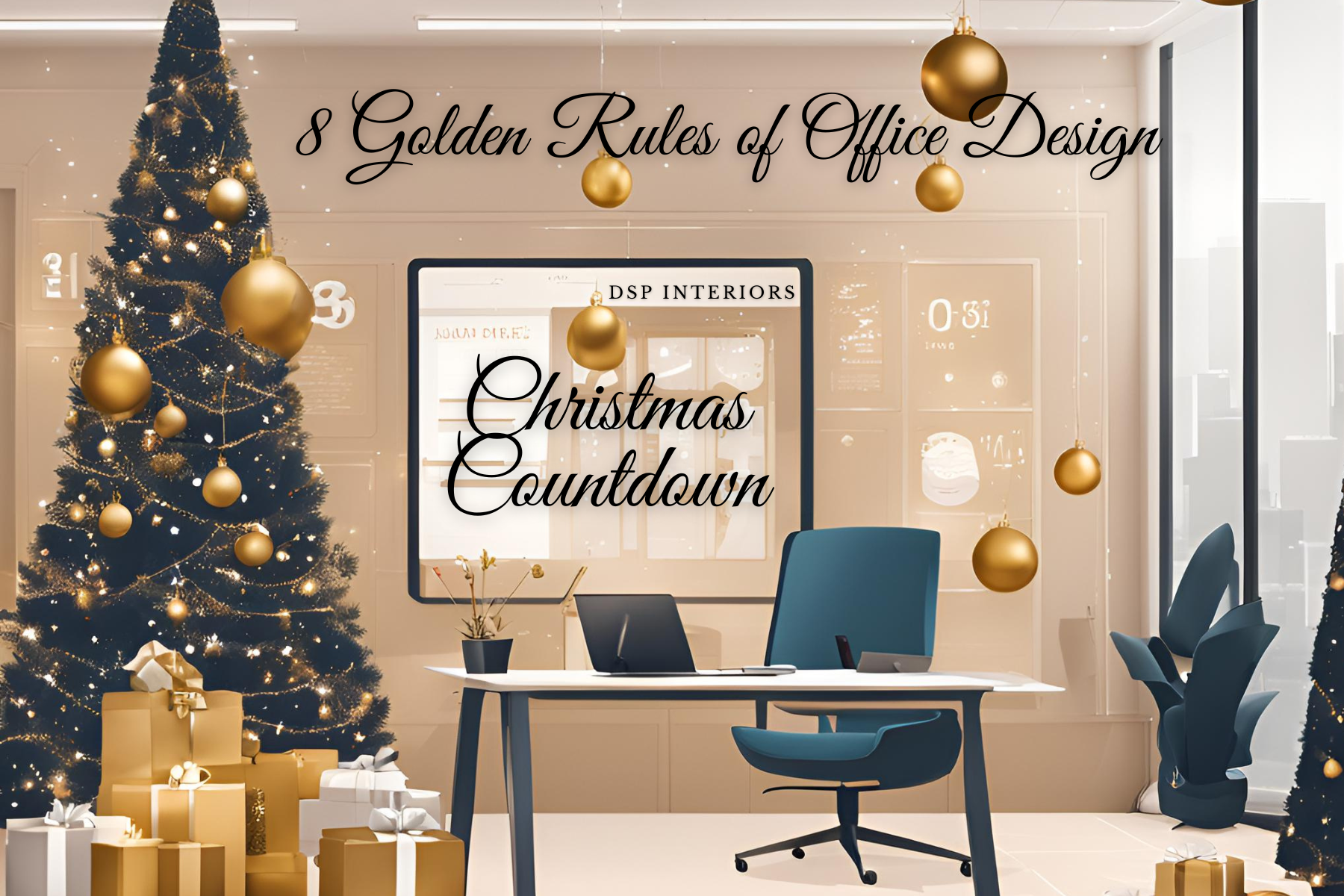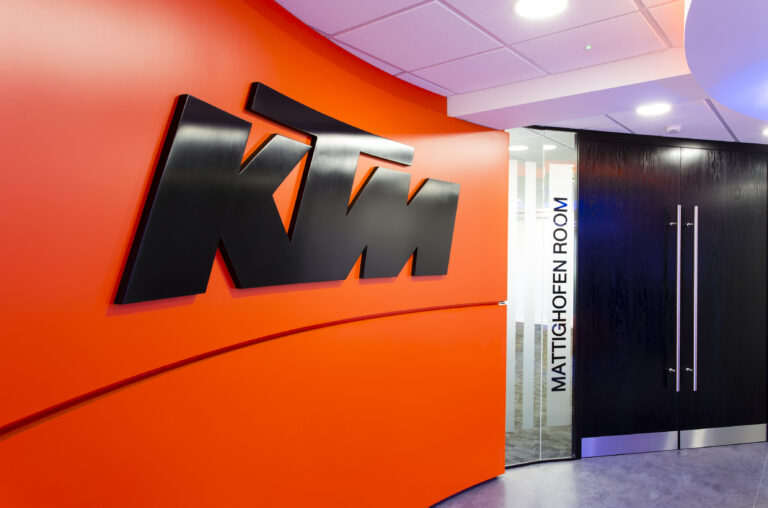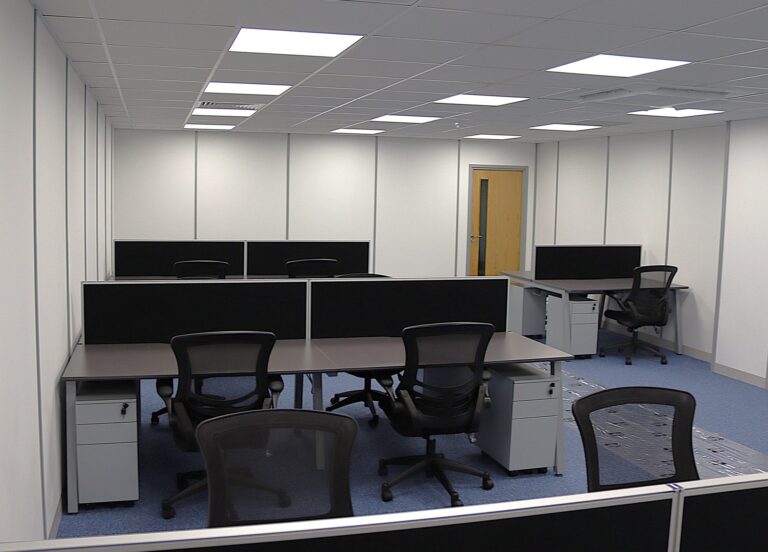As we approach the end of the year and look forward to a fresh start in 2025, there’s no better time to reflect on how your office environment shapes your business. A thoughtfully designed office is more than just a place to work—it influences productivity, well-being, creativity, and the overall culture of your company.
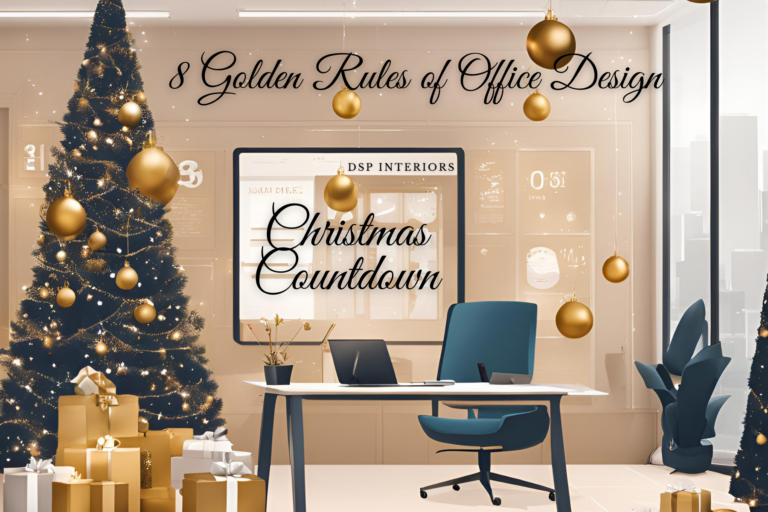
In celebration of the Christmas countdown, we’re sharing the 8 Golden Rules of Office Design to help you create a space that supports your team, enhances collaboration, and sets the stage for success in the coming year.
1. Well-Being: The Foundation of Great Office Design
The first and most important rule of office design is prioritising the well-being of your team. In today’s fast-paced work environment, employee health is crucial to maintaining productivity and morale. Office design should focus on creating spaces that reduce stress, enhance comfort, and improve mental and physical health.
Key Features:
- Ensuring acoustic comfort by using quiet zones for focused work and reducing distractions through good acoustic design to reduce reverberation and noise flanking
- Comfortable seating that promotes proper posture
- Encouraging movement of staff to improve posture including the use of sit-stand desks, promoting agile working to change work settings throughout the day and even walk and talk meetings
- Areas for relaxation and social interaction
- As much natural lighting and views outside to retain the connection to nature
- Ensuring healthy environments through improved air quality and suitable lighting
- Providing inclusive environments for a range of physical and sensory impairments
Creating a healthy work environment will keep your team motivated and energised, even during the busiest times of year.
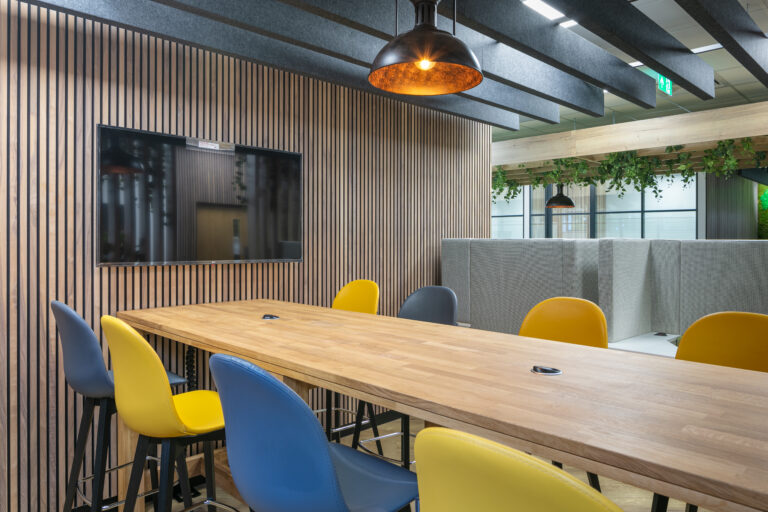
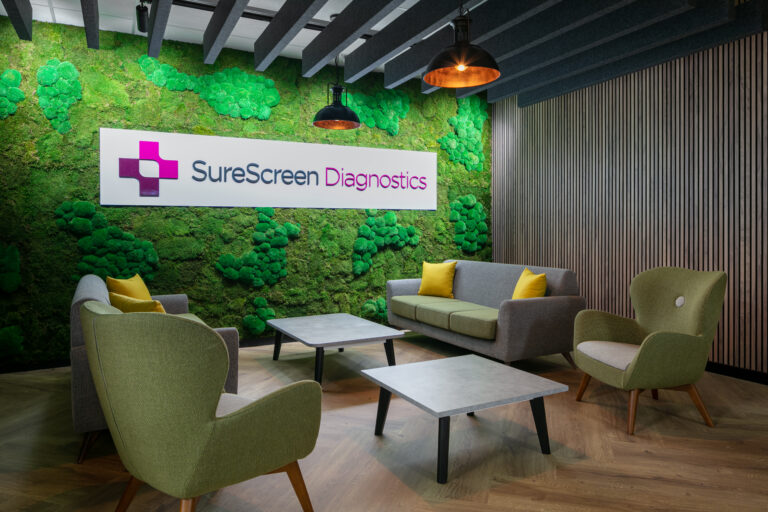
2. Ergonomics: Design for Comfort and Productivity
Ergonomics is about creating an environment that is physically comfortable and reduces strain on the body. Poor ergonomics in the office can lead to long-term health issues like back pain, neck strain, and eye discomfort. A well-designed workspace helps employees stay comfortable throughout their day, which in turn boosts productivity and reduces absenteeism.
Key Features:
- Adjustable chairs with lumbar support
- Desks that can be adjusted for sitting or standing
- Proper monitor placement to reduce eye strain
- Encouraging change of posture through movement via a range of working scenarios by adopting agile working
Investing in ergonomic furniture and layouts will make your office a more pleasant and efficient space to work in.
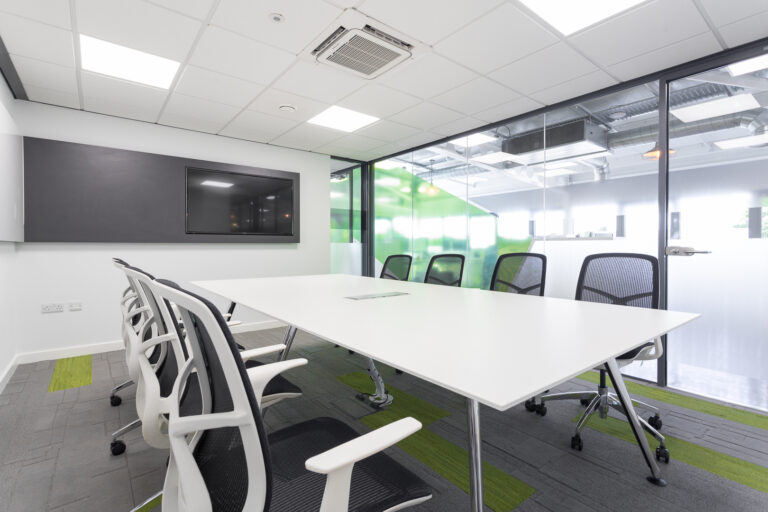
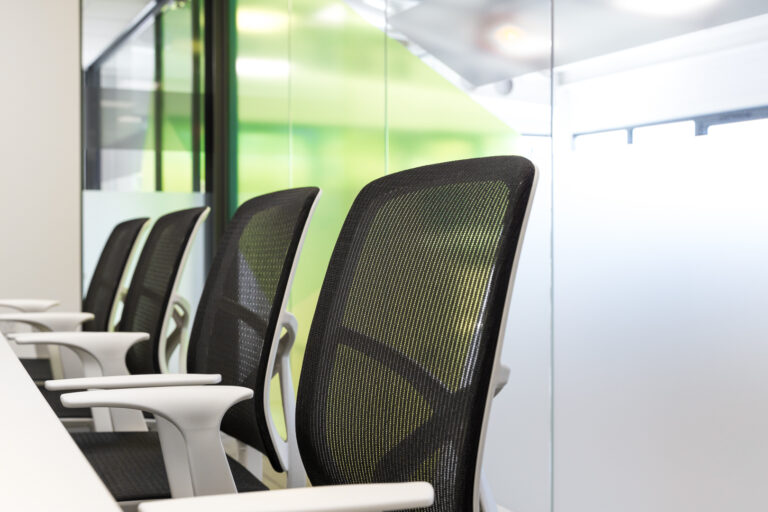
3. Lighting Matters: Set the Mood and Energy
Lighting is one of the most impactful elements of office design. Not only does it affect how a space looks, but it also influences mood, energy, and productivity. Natural light is ideal because it aligns with our circadian rhythms, but well-placed artificial lighting can provide the necessary balance.
Key Features:
- Maximize natural light with open layouts and large windows
- Use layered lighting to create both bright, well-lit areas and soft, ambient spaces
- Consider adjustable lighting options to meet varying needs throughout the day
By getting the lighting right, you can boost employee energy, focus, and overall well-being. Installing the right fittings can also reduce energy use, helping the environment and reducing your energy bills, a win-win.

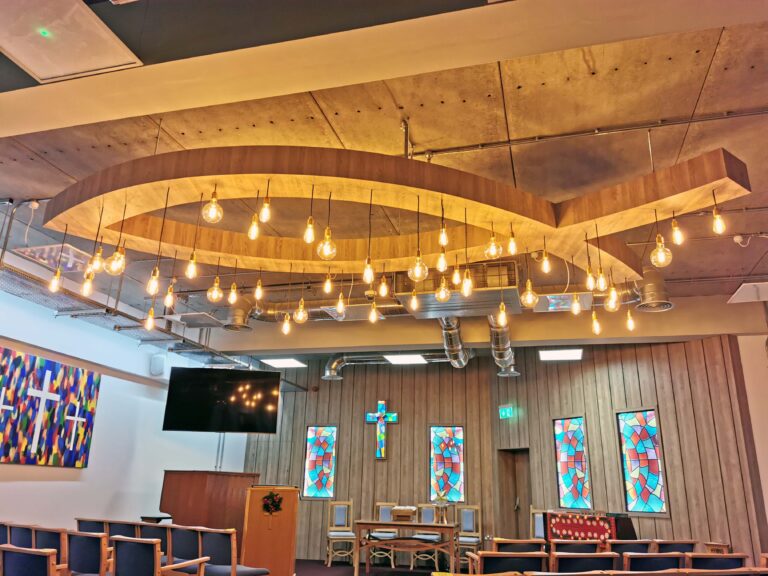
4. Flexibility is Key: Designing for Change
The modern workplace is more dynamic than ever. Whether it’s accommodating hybrid work schedules or changing team sizes, flexibility is essential. A flexible office design can easily adapt to the evolving needs of your business and your people.
Key Features:
- Modular furniture that can be reconfigured for different needs
- Multi-purpose spaces that can serve as meeting rooms, relaxation areas, or private workstations
- Adjustable layouts for varying group sizes and work styles
Designing with flexibility ensures that your office can accommodate growth, innovation, and the shifting demands of the modern workforce.

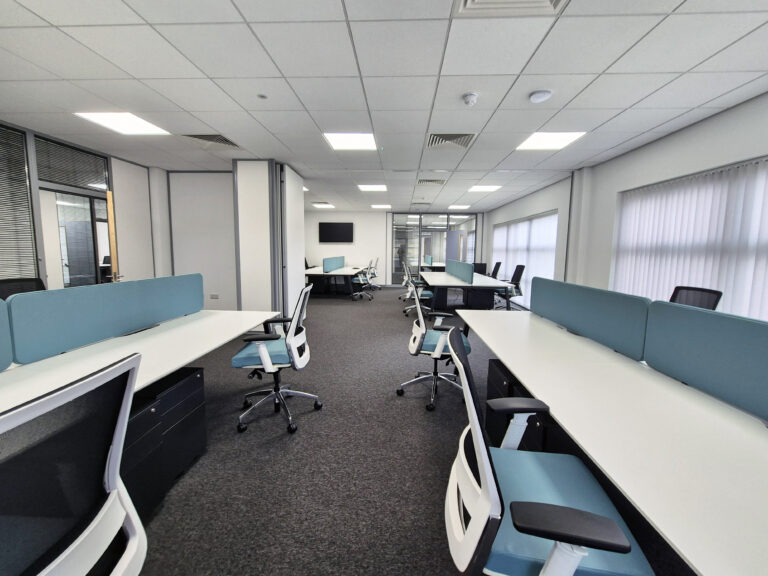
5. Biophilic Design: Bringing Nature Indoors
Biophilic design integrates natural elements into the built environment. Research shows that biophilic features can improve air quality, reduce stress, and enhance creativity. Incorporating plants, natural textures, and outdoor views into your office can create a more vibrant and calming atmosphere.
Key Features:
- Incorporate live plants or green walls
- Use natural materials like wood, stone, and wool for furniture and finishes
- Create visual connections to nature, such as with large windows or natural landscapes
The benefits of biophilic design go beyond aesthetics—it’s about creating a space that nurtures the well-being of employees while enhancing creativity and engagement.
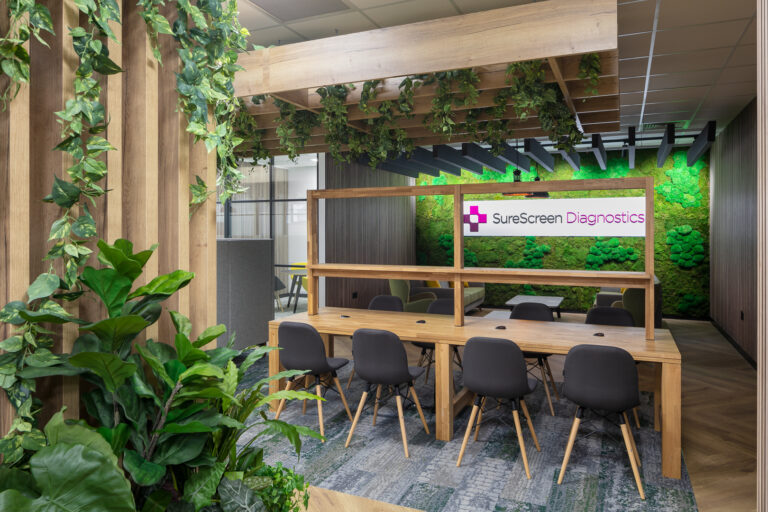
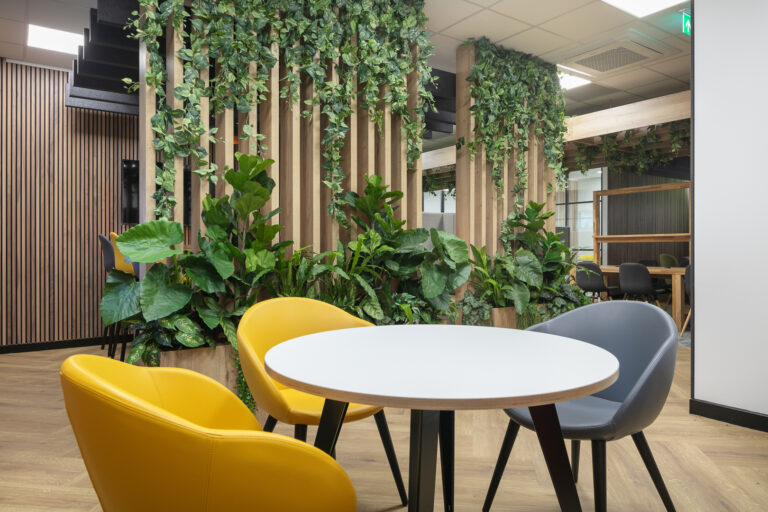
6. Collaboration and Privacy: The Perfect Balance
Balancing collaboration with privacy is essential to a well-functioning office. Open spaces encourage teamwork and idea-sharing, but employees also need quiet, private spaces to focus and recharge. Designing areas for both group work and individual focus will create an office that supports every type of work.
Key Features:
- Open-plan areas for collaboration and brainstorming
- Private rooms or soundproof pods for deep work and calls
- Flexible meeting spaces that accommodate both small teams and larger groups
A successful office design supports both the need for team collaboration and the need for personal focus, ensuring that employees can work how they need to.
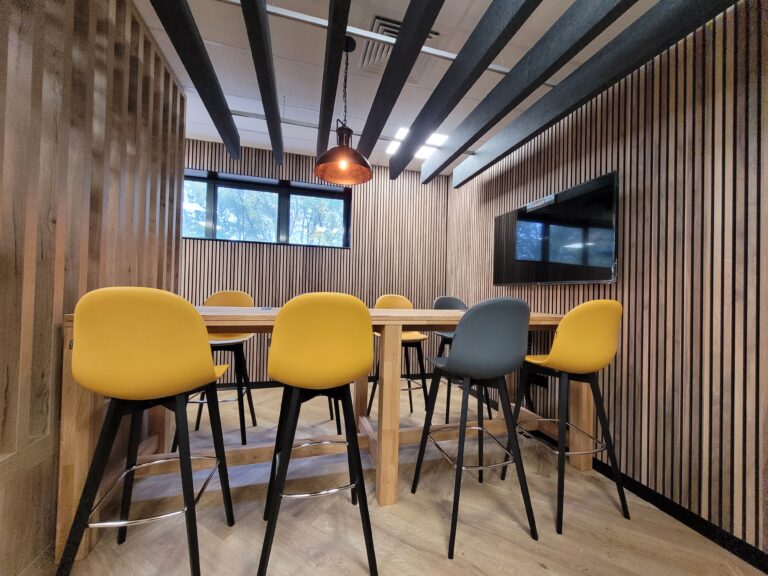
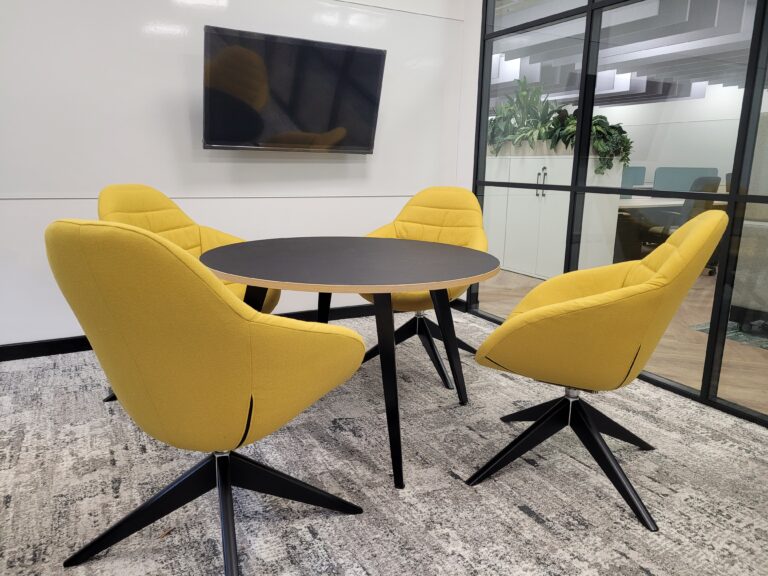
7. Workplace Culture: Design Reflects Your Values
Your office is a physical representation of your company culture. Whether it’s an open, creative environment or a structured, professional setting, your design should reflect the values and personality of your business. A well-designed space can reinforce your culture, promote engagement, and attract the right talent.
Key Features:
- Design that aligns with your brand identity and company values
- Communal spaces that foster interaction and connection
- Personalisation opportunities, such as custom artwork or employee input on design choices
A strong connection between your office environment and your company’s culture makes employees feel more at home and aligned with the mission of the organisation.
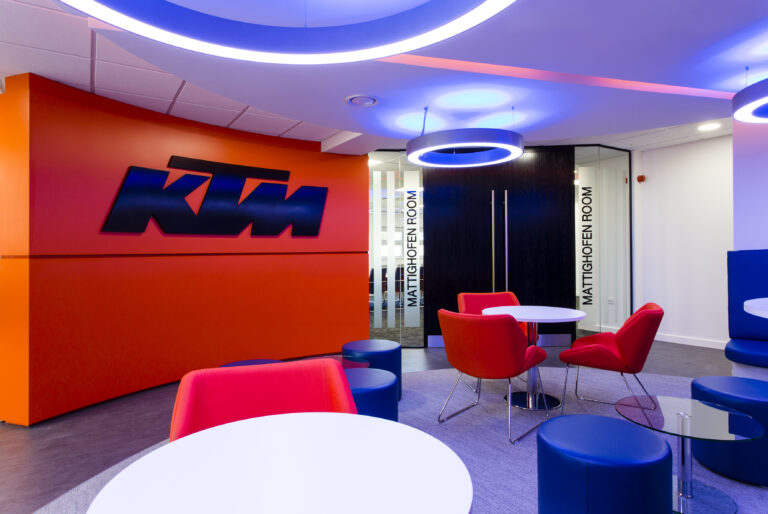

8. Fit-for-Purpose Specification
The final golden rule of office design is ensuring that your space is fit for purpose—designed to meet the specific needs of your business. No two companies are the same, so your office should be tailored to your workflow, technology, and team dynamics. It is also crucial that beyond space utilisation your workplace complies with current building regulations and industry standards and is built to withstand commercial use.
Key Features:
- Technology integration that supports collaboration and communication
- Purpose-built spaces for specific tasks, like creative brainstorming, meetings, or individual focus
- Scalable storage solutions that keep the office organised and efficient
- Specifying and properly installing the correct systems to ensure durability, functionality and longevity.
- Ensuring full compliance with all fire and Health & Safety requirements through correct specification and design layouts.
When your office design is aligned with your business’s unique needs, you’ll be ready to hit the ground running in the new year.
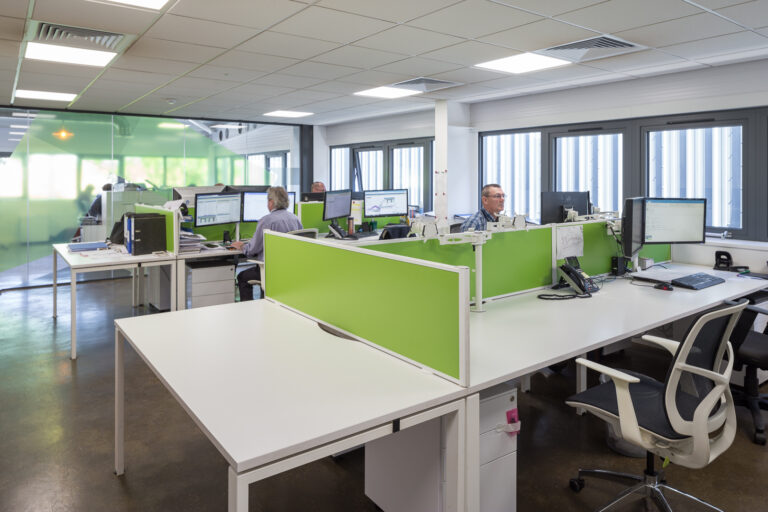
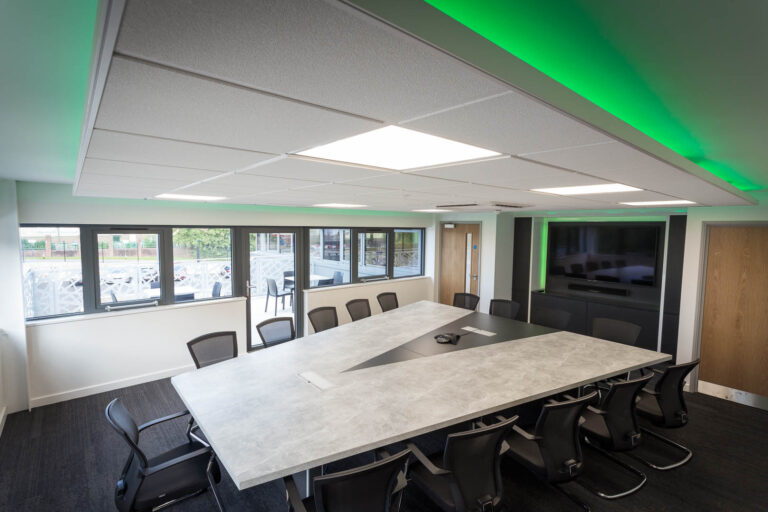
Transform Your Workspace for the New Year
As we count down to the new year, take this opportunity to reflect on how your office design can help your business thrive in 2025. By embracing the 8 Golden Rules of Office Design, you’ll create a space that supports well-being, enhances productivity, and fosters a collaborative, innovative culture.
Whether you’re planning a complete redesign or making small updates, now is the perfect time to transform your office into a space that inspires your team and sets your business up for success.
Merry Christmas from DSP Interiors! 🎄✨
Why Choose DSP?
DSP (Interiors) specialise in designing and fitting out bespoke collaborative workspaces tailored to enhance innovation and productivity. Ready to elevate your office space?
Contact us at sales@dsp-solutions.co.uk or 01332291618 to discover how we can help transform your office

